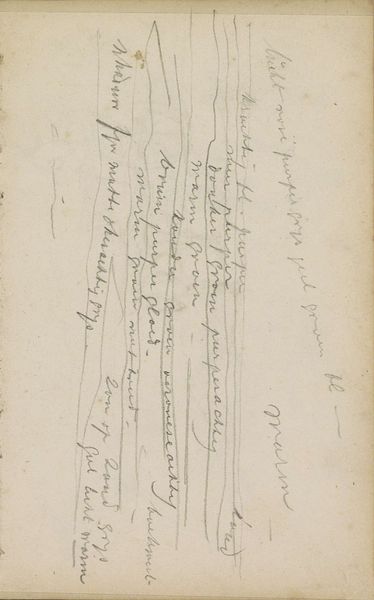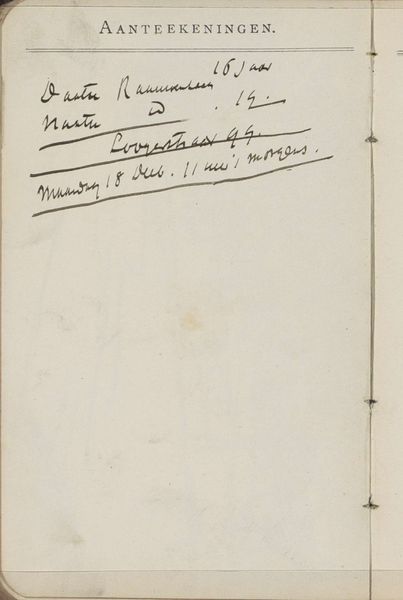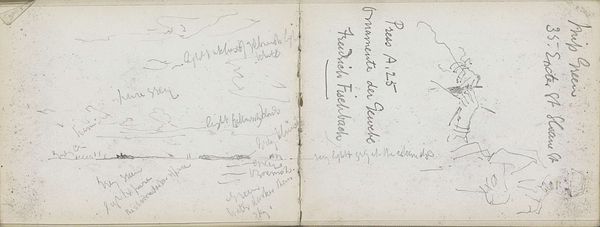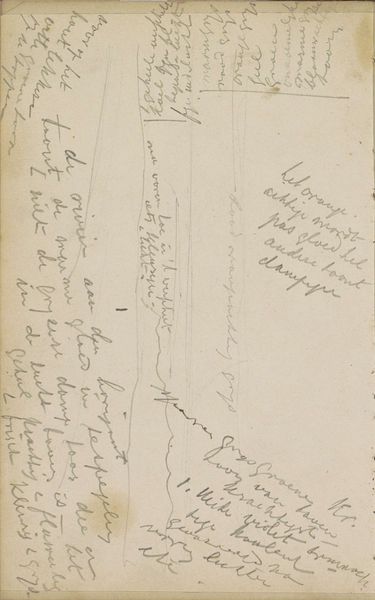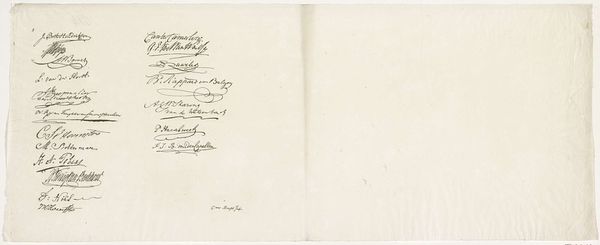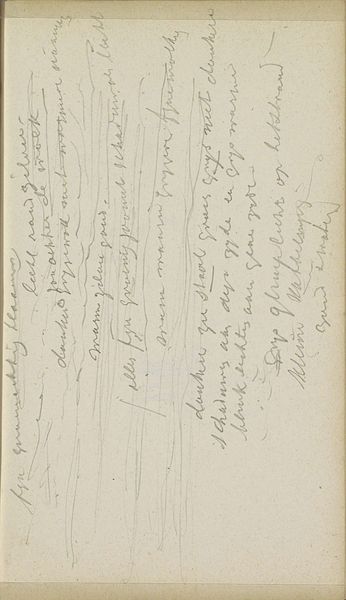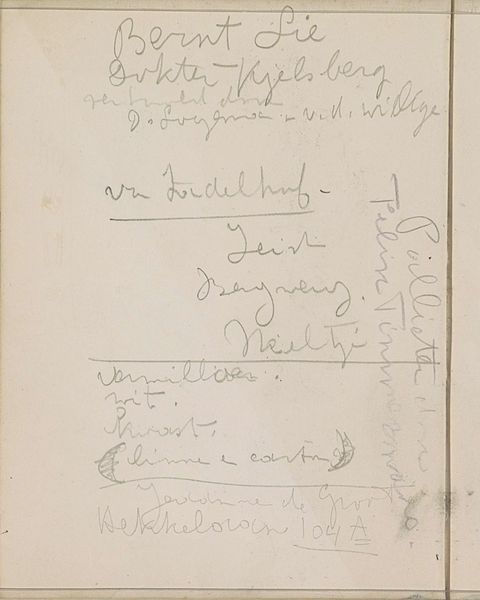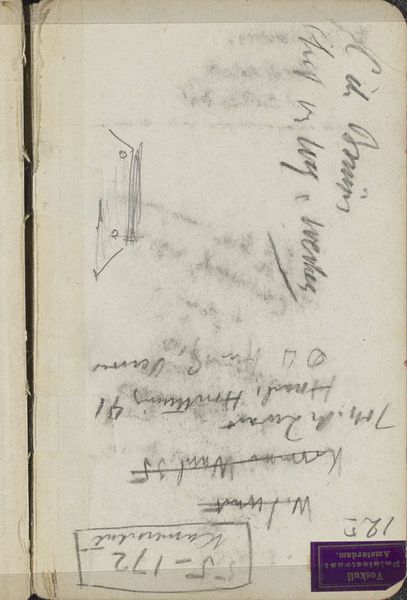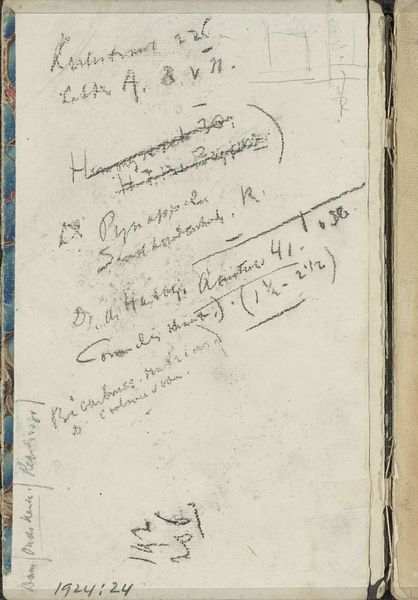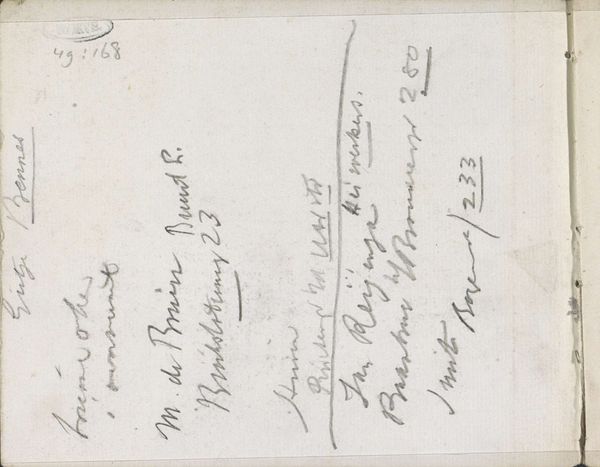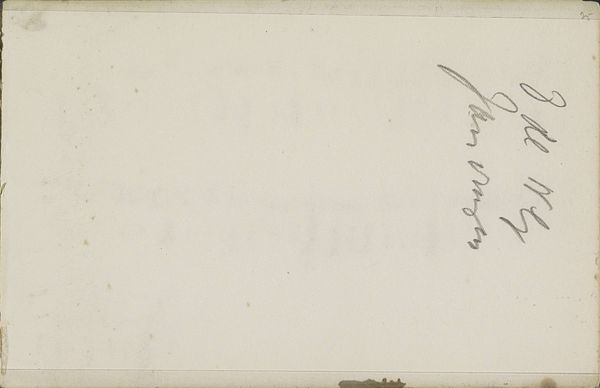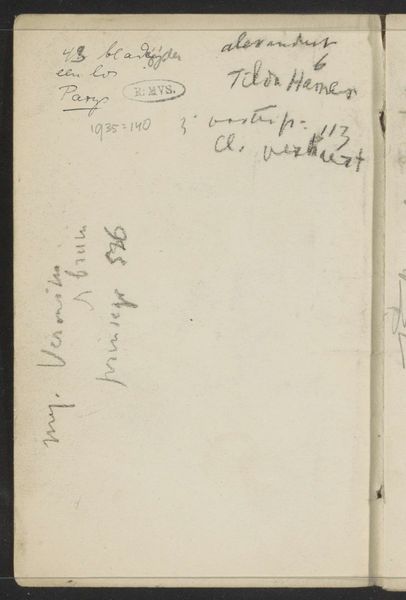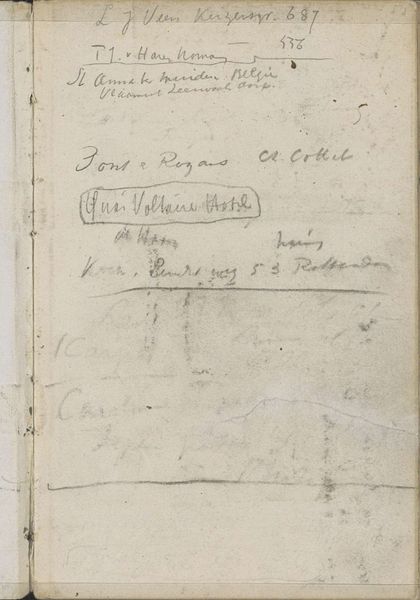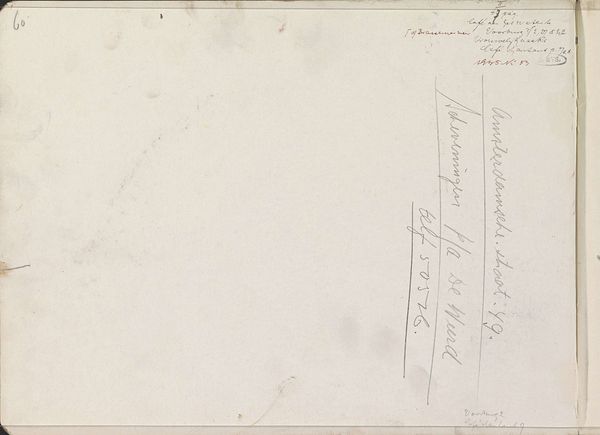
drawing, paper, pencil
#
drawing
#
hand-lettering
#
hand drawn type
#
landscape
#
hand lettering
#
paper
#
personal sketchbook
#
hand-drawn typeface
#
ink drawing experimentation
#
pen-ink sketch
#
pencil
#
pen work
#
sketchbook drawing
#
sketchbook art
Copyright: Rijks Museum: Open Domain
Editor: This drawing, "Landschap en een mannenkop," or Landscape and a Man's Head, by George Clausen from 1874, uses graphite and ink on paper. It's so faint and unfinished, like a fleeting thought captured in a notebook. What cultural context shaped the creation of such a seemingly informal sketch? Curator: It's fascinating how sketchbooks offer unfiltered insights. Consider 1874—the rise of industrialization dramatically reshaped landscapes. Artists like Clausen often captured both the nostalgic beauty of untouched nature and the burgeoning signs of modernity. How do you see this tension reflected here, even in its subtle form? Editor: I see it in the juxtaposition, almost. On the left, the definite, though sketchy, landscape. On the right, almost nothing, barely a suggestion of the head. It’s as if one is fading into the other. Curator: Precisely. And think about the art institutions of the time. Academic art still held sway, but there was a growing appetite for "realist" depictions of everyday life and landscapes. Sketchbooks provided a space for artists to break free from formal constraints. Does this image strike you as challenging the establishment in some small way? Editor: Maybe. It definitely seems like a private act, not meant for public consumption, more experimental. I notice little scribbled notes around the edges. Curator: Indeed. The act of sketching itself was becoming valued, not just as preparation, but as a form of direct, unmediated engagement with the world. Sketchbooks began to be seen as valuable historical documents themselves. This was Clausen practicing his craft, of course, but the artifact itself now teaches us something of the artist’s inner workings. Editor: So, what seems like a simple sketch actually speaks volumes about the changing role of the artist and the landscape itself! That really opens my eyes. Curator: Mine as well. Thinking about the social and cultural elements really breathes life into it!
Comments
No comments
Be the first to comment and join the conversation on the ultimate creative platform.
